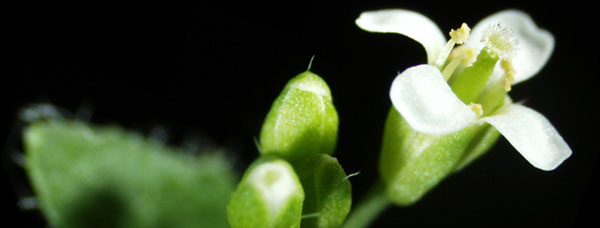Cellular Stress Management in People and Plants
26 October 2015

Photo: Sui-setz / Wikimedia (CC BY-SA 3.0)
In their research on the model plant thale cress (Arabidopsis thaliana), scientists from the Centre for Organismal Studies of Heidelberg University have discovered a major function of a fundamental cellular mechanism for stress management. They observed that the biochemistry and cell biology of plants and humans are quite similar. Their findings are significant for the stress biology of human cells as well as the development of agricultural crops that are highly resistant to their primary stressor, drought. The Heidelberg team under the direction of Prof. Dr. Rüdiger Hell and Dr. Markus Wirtz also cooperated with researchers from France and Norway in their investigations. Their results were published in the journal “Nature Communications”.
Proteins have many tasks to fulfil in the structure, function and regulation of cells. Once the proteins are formed, they are further adapted for their very specific jobs. “One of the most frequent changes is the attachment of an acetic acid residue on the amino-terminal end of the proteins. Lacking this modification, the plants cannot survive, and this same lack in certain proteins in humans leads to illness, developmental problems and cell death,” explains Prof. Hell. Although up to 80 percent of proteins in the cytoplasm of human cells are modified by an acetic acid residue at their amino terminus, the function of this modification has only been studied for a handful of proteins.
The Heidelberg researchers generated genetically modified plants with protein populations that carry less acetic acid residues and analysed the results. “The changed pattern of amino-terminal modification proteins by acetic acid surprisingly made the genetically modified plants proved to be more drought-resistant,” continues Dr. Wirtz. The reason turned out to be mediated by the plant hormone abscisic acid, a key player in drought stress. The drought resistance was based on the constant activation of natural plant processes to counteract the stress, such as closing the stomata and lengthening the primary root.

